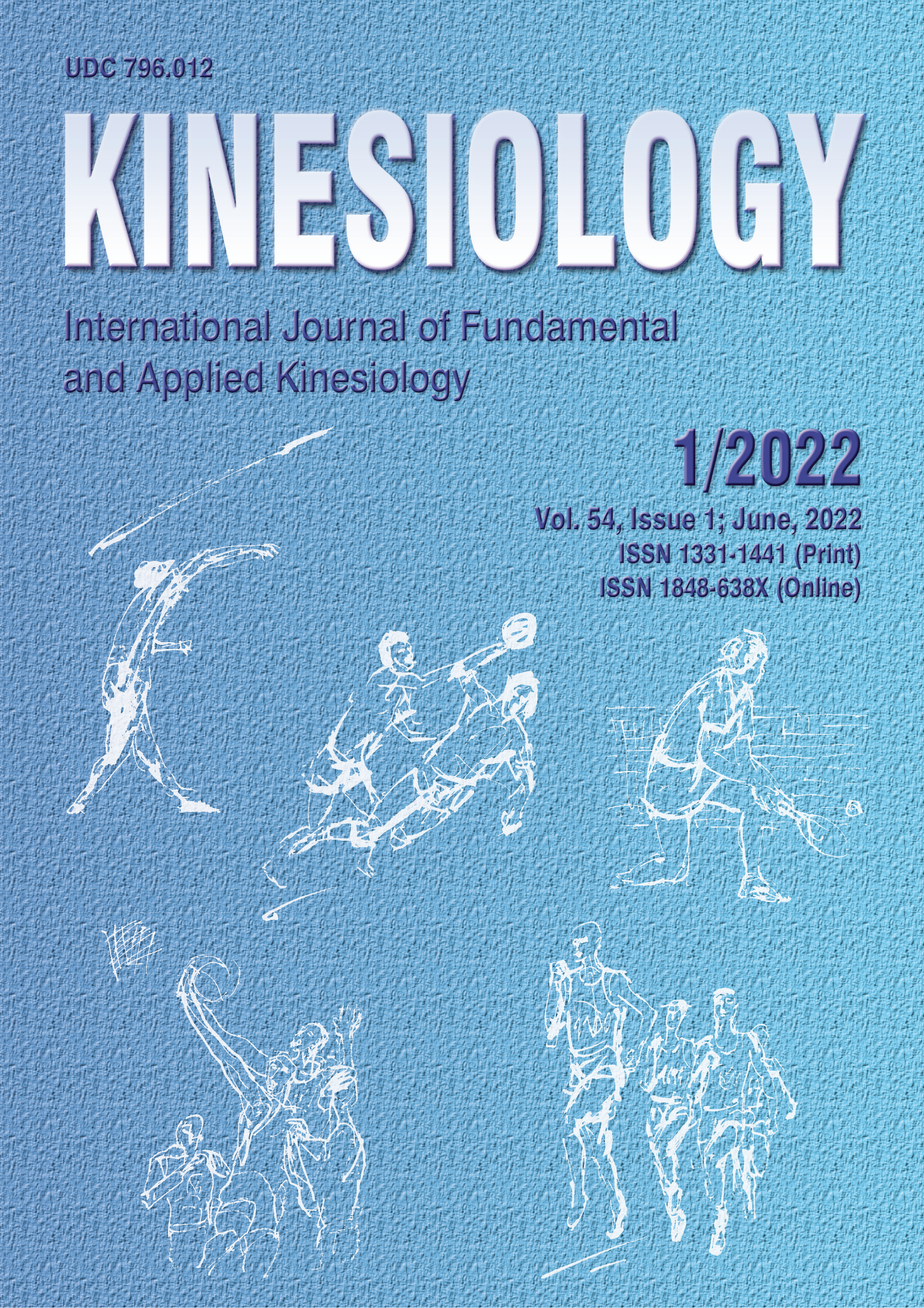ACTIVITY PROFILE AND PHYSIOLOGICAL DEMAND OF PADEL MATCH PLAY: A SYSTEMATIC REVIEW
Abstract
Padel is a complex sport within which performance relies on the interrelation of multiple factors such as physiological and physical capacities, psychological skills, and tactical and technical knowledge. Padel match involves intermittent whole-body efforts, evidenced by a large number of strokes and repeated high-intensity running actions such as accelerations, decelerations and changes of direction. Due to its recent creation, little is known about the activity and energy demands of padel match play. The purpose of the present study was to systematically review physiological demands of padel match play by assessing parameters related to external load, such as notational analysis or time-motion studies, and internal load through the analysis of physiological responses during the match. The systematic review process was conducted in accordance with the PRISMA guidelines. The electronic databases PubMed, Scopus and SportDiscus were searched using: (“padel” OR “pádel” OR “paddle tennis”). Twelve papers matched the inclusion criteria, from which four addressed internal load, six external load, and two analyzed both. A total of 203 padel players across all competition levels participated in the 12 selected studies. Study outcomes have probed prevalence of moderate physiological responses, low contribution of anaerobic glycolytic processes to supply energy, VO2 not being a limiting factor, and moderate to relatively high perceived effort rate. The highest game durations were found in professional players. Work-to-rest ratios reaffirm the intermittent nature of padel. Distance covered per set and match as well as speed are reciprocally proportional to player’s standard level.
Key words: physiology, training load, paddle tennis, PRISMA
Downloads
Published
How to Cite
Issue
Section
License

This work is licensed under a Creative Commons Attribution-NonCommercial 4.0 International License.
At Faculty of Kinesiology we recognize that access to quality research is vital to the scientific community and beyond. Kinesiology is non-profit journal and all costs of publishing and peer review process are covered by the publisher itself or other funding sources like Ministry of Science and Education of the Republic of Croatia. Full text papers are also available free of charge at http://hrcak.srce.hr/kineziologija. There are no restrictions on self archiving of any form of paper (preprint, postprint and publisher's version).
Articles are distributed under the terms of the CC BY - NC 4.0
Kinesiology does not charge any fees to authors to submit or publish articles in our journal.


